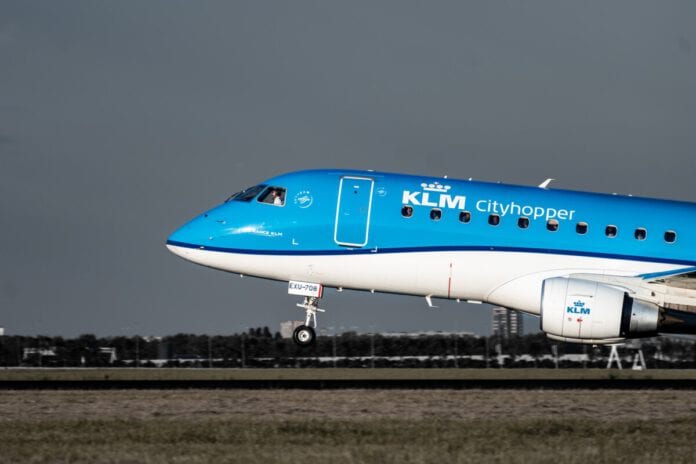Greenpeace is calling for government aid to KLM to be completely withdrawn, arguing that no climate conditions are attached to the aid.
KLM received a €3.4 billion support package to help them survive the drastic dip in passengers that the coronavirus caused, reports RTL Nieuws. €1 billion of this was a direct loan from the state and the remaining €2.4 billion from banks guaranteed by the state.
Greenpeace argues that by supporting KLM, the Dutch government is supporting the massive amount of pollution caused by the company. “With extra money you keep it going and you take responsibility for the pollution,” a Greenpeace spokesperson said.
The Urgenda case
In 2015, Greenpeace won a court case which sued the Dutch government for their role in climate change, known as the Urgenda case. The court ruled that the Dutch government had to reduce emissions by 25% by 2020. Greenpeace is now hoping to link this case against aid to KLM to the Urgenda case.
Climate agreements
The support packages do, however, have some climate agreements in them. For example, by 2030 the flight company must reduce emissions per passenger kilometre by 50%. However, Greenpeace is pushing for strict agreements on how much CO2 the company emits every year. This amount, says Greenpeace, should be reduced each year.
Today Greenpeace will submit a summons to the state in order to try and resolve the issue outside of court. Summary proceedings will follow.
Do you think government aid to KLM should be cut? Is KLM doing enough to reduce their CO2 emissions? Share your thoughts in the comments below.
Feature Image: Michael Fousert/Unsplash




Having policy dictated by a tiny minority is not democratic. The Urgendia case is a splendid example of an activist mob of just 300 persons holding sway over a nation of 17 million. It is not for Greenpeace to do the same.
Surely the best approach is for us all to make the effort to minimize our impact on the environment. And for governments to change the very lenient tax regime for airlines. Prices will rise, but is that really so bad given pollution from aviation, feeder travel by road, and the embedded environmental cost of the aviation industry overall.
Similar comments can be made for shipping, the twenty largest container ships emitting more sulphur oxides than all the world’s road vehicles combined.
If there continue to be legal cases like this, in practise we will have governance by lawyers not democratically elected representatives.
According to “payscale.com” the Average yearly pay for a Greenpeace employee is $61,000 (€51,300)!!
Greenpeace has a vested interest in bringing lawsuits, no matter their merit. Lawsuits mean publicity and publicity means donors sending contributions.
While Greenpeace employees (and even “plain” members) perhaps walk or bicycle within their hometown and environs, it is ludicrous to believe they don’t make use of planes, trains and automobiles. This is called “ Hypocrisy“!
The business of Greenpeace is Greenpeace.